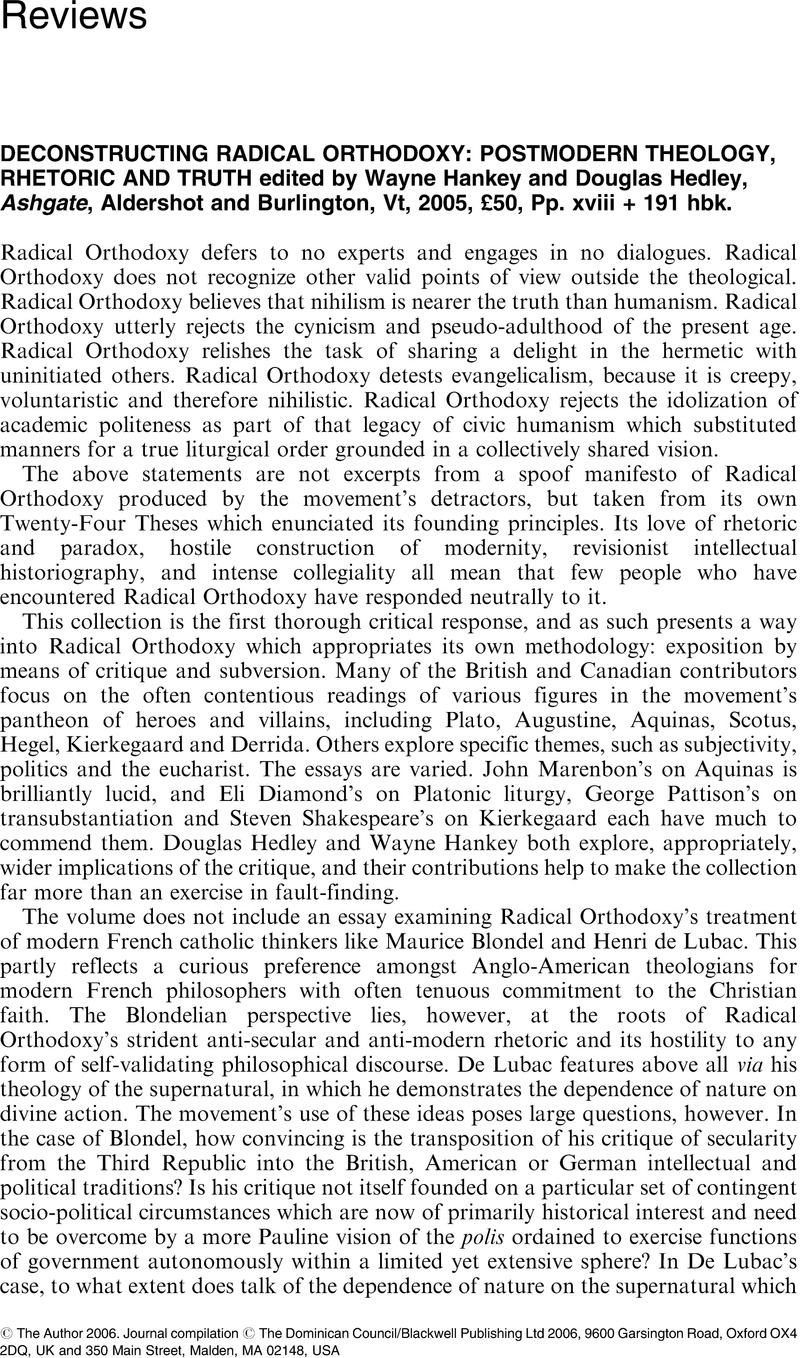No CrossRef data available.
Article contents
Deconstructing Radical Orthodoxy: Postmodern Theology, Rhetoric and Truth edited by Wayne Hankey and Douglas Hedley, Ashgate, Aldershot and Burlington, Vt, 2005, £50, Pp. xviii + 191 hbk.
Review products
Deconstructing Radical Orthodoxy: Postmodern Theology, Rhetoric and Truth edited by Wayne Hankey and Douglas Hedley, Ashgate, Aldershot and Burlington, Vt, 2005, £50, Pp. xviii + 191 hbk.
Published online by Cambridge University Press: 01 January 2024
Abstract
An abstract is not available for this content so a preview has been provided. Please use the Get access link above for information on how to access this content.

- Type
- Reviews
- Information
- Copyright
- © The Author 2006. Journal compilation © The Dominican Council/Blackwell Publishing Ltd 2006, 9600 Garsington Road, Oxford OX4 2DQ, UK and 350 Main Street, Malden, MA 02148, USA


